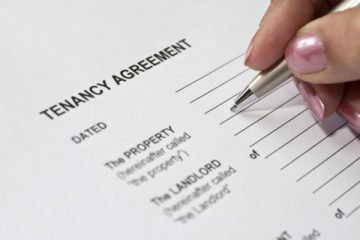Penalty Clauses in New Tenancy Agreements
Matt, a tenant, wrote to the Landlord Law Blog after he was confused over changes his landlord was making at the time of his tenancy renewal.
His enquiry was as follows: “Our landlord has provided a new fixed term tenancy agreement. The new agreement states that the landlord can charge £50, plus out of pocket expenses if he has to visit after we move out to oversee any repairs or removal of any property we leave.
“Does the landlord have the right to do this, and is this a reasonable charge?
“Also, the purpose of the new agreement is to increase the rent, as the old tenancy agreement did not explicitly state this was allowed. The increase is £30, do we have a right to dispute this amount, or is it too small?”1
The blog’s resident landlord answered the questions posed by Matt, and detailed the rights of both tenant and landlord in this case.
On the £50 charge, they say: “The question here is whether this clause is fair or not. If it is unfair then under the Unfair Terms in Consumer Contracts Regulations 1999, it will be unenforceable.
“My feeling is that it is almost certainly unfair.”
They continued: “The way it should work, is that at the time you vacate, the landlord or his inventory clerk will view and assess the property against the inventory, which was prepared and checked when you moved in.
“You will be charged a reasonable charge for any damage that inspection throws up, and the landlord will be entitled to claim for this from your deposit.
“Your landlord seems to want to charge an extra £50 for every visit, on top of any expenses. However, for a penalty clause to be enforceable it needs to be a reasonable estimate of the cost to the landlord of his tenants’ breach of contract.
“A claim for expenses might be allowable, so long as they were reasonable expenses, but what is the justification for the extra £50?
“There is also the point that the tenancy will have ended; the tenant can only be held responsible for things which the landlord can prove were caused by him or her, which means in practice, issues thrown up by the check-out report. They can’t be held liable for anything else.”
On the removal of items, the landlord states: “So far as removal of things left behind are concerned, there is a special procedure for this.” You can find out more here.
They add: “It will of course depend on the precise wording of the clause, but I would be surprised if a claim under this clause was upheld by an adjudicator, if you challenged a deduction from your deposit, or by a judge, if the landlord brought a claim for a CCJ for the fees later.”
On the matter of rent rises, the landlord says: “If the landlord wants to increase the rent at renewal, you have a choice: either you sign the new tenancy agreement, and get a new fixed term, or you do not.
“If you do not, then you have the right to stay on in the property, under a periodic tenancy, but the landlord will have the right to serve a section 21 notice on you and evict you through the courts.
“He may not actually want to do this, so it’s up to you whether you risk this or not.”
They then provide an alternative: “You can of course always try to negotiate something different with him. For example, if he wants you to stay, he may agree to a lower increase.
“However, there is no formal procedure for challenging the rent in a tenancy agreement for a renewal, as for example there is for challenging rent increases if the landlord serves a notice of rent increase. You either sign, don’t sign, or negotiate something different.”1

